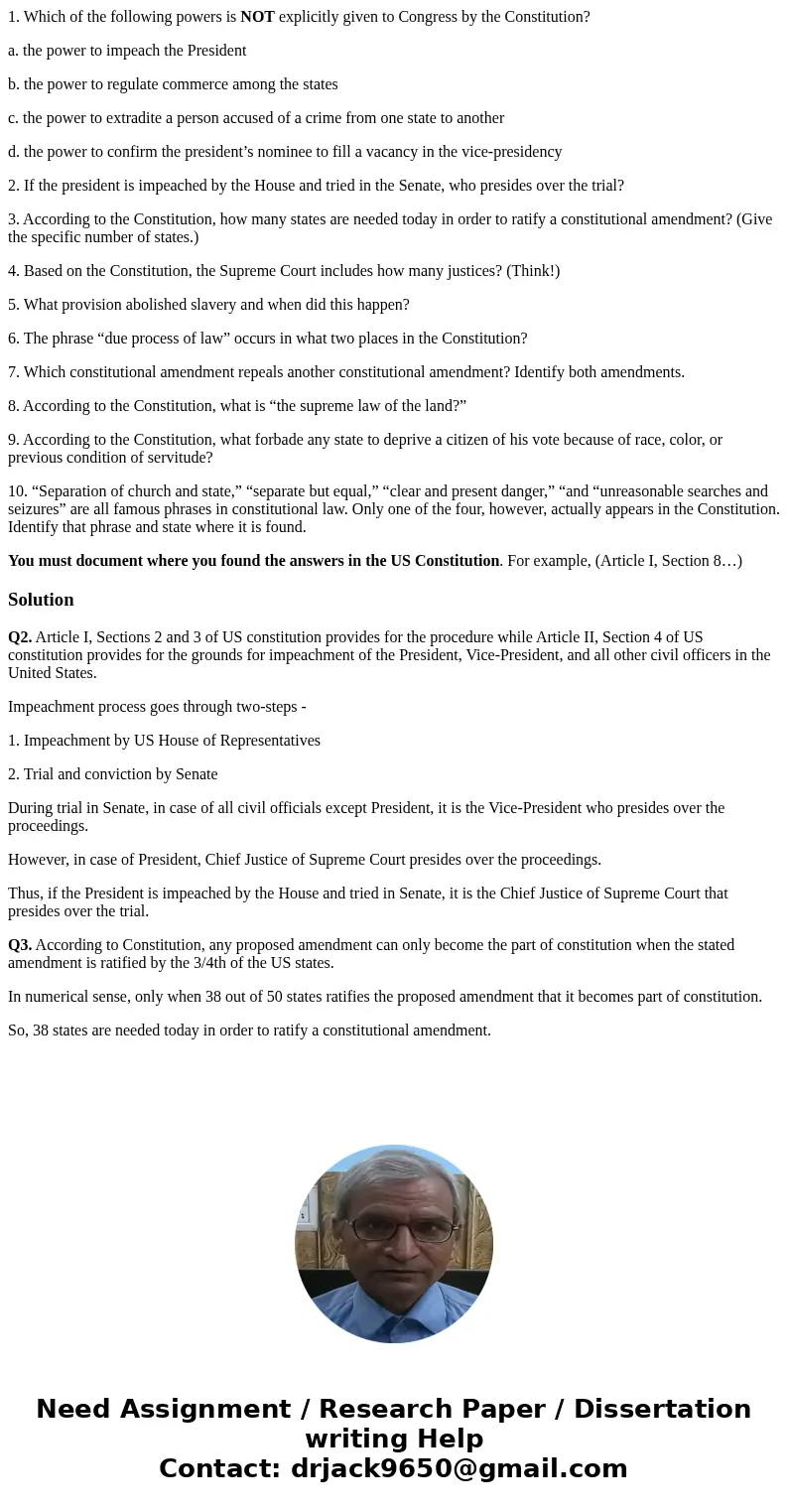1 Which of the following powers is NOT explicitly given to C
1. Which of the following powers is NOT explicitly given to Congress by the Constitution?
a. the power to impeach the President
b. the power to regulate commerce among the states
c. the power to extradite a person accused of a crime from one state to another
d. the power to confirm the president’s nominee to fill a vacancy in the vice-presidency
2. If the president is impeached by the House and tried in the Senate, who presides over the trial?
3. According to the Constitution, how many states are needed today in order to ratify a constitutional amendment? (Give the specific number of states.)
4. Based on the Constitution, the Supreme Court includes how many justices? (Think!)
5. What provision abolished slavery and when did this happen?
6. The phrase “due process of law” occurs in what two places in the Constitution?
7. Which constitutional amendment repeals another constitutional amendment? Identify both amendments.
8. According to the Constitution, what is “the supreme law of the land?”
9. According to the Constitution, what forbade any state to deprive a citizen of his vote because of race, color, or previous condition of servitude?
10. “Separation of church and state,” “separate but equal,” “clear and present danger,” “and “unreasonable searches and seizures” are all famous phrases in constitutional law. Only one of the four, however, actually appears in the Constitution. Identify that phrase and state where it is found.
You must document where you found the answers in the US Constitution. For example, (Article I, Section 8…)
Solution
Q2. Article I, Sections 2 and 3 of US constitution provides for the procedure while Article II, Section 4 of US constitution provides for the grounds for impeachment of the President, Vice-President, and all other civil officers in the United States.
Impeachment process goes through two-steps -
1. Impeachment by US House of Representatives
2. Trial and conviction by Senate
During trial in Senate, in case of all civil officials except President, it is the Vice-President who presides over the proceedings.
However, in case of President, Chief Justice of Supreme Court presides over the proceedings.
Thus, if the President is impeached by the House and tried in Senate, it is the Chief Justice of Supreme Court that presides over the trial.
Q3. According to Constitution, any proposed amendment can only become the part of constitution when the stated amendment is ratified by the 3/4th of the US states.
In numerical sense, only when 38 out of 50 states ratifies the proposed amendment that it becomes part of constitution.
So, 38 states are needed today in order to ratify a constitutional amendment.

 Homework Sourse
Homework Sourse